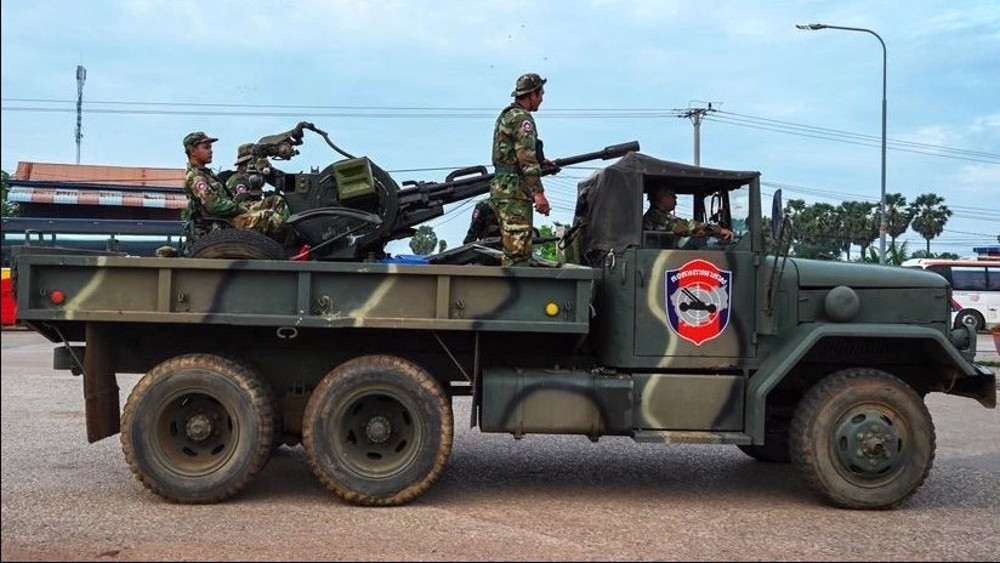CIA, Colombian paramilitaries seek to sabotage peace deal: Analyst
Press TV has conducted an interview with Brian Becker, a member of the ANSWER Coalition, and Javier Farje, a Latin America affairs expert, to discuss a landmark peace deal between the government of Colombia and the FARC rebel group which was rejected in a referendum by voters.
Becker believes the right-wing paramilitary groups in Colombia who have historically been backed by the Pentagon and the CIA do not want peace in the country and they are the ones who are sabotaging the agreement.
The analyst also stated the recent targeted killings by paramilitaries are an attempt to undermine the peace deal.
“The goal of those kind of executions and those assassinations which have been going on is to force the FARC to come to the conclusion that if they lay down their arms that they will be vulnerable, that they will be killed, that it will make life impossible for them as happened when they joined the Patriotic Union in the 1980s and early 1890s,” he said.
“That would force at least some parts of the FARC to take up the armed struggle and to resume the armed struggle once again and that would then become the basis or the pretext for sabotaging the agreement once and for all,” he added.
The peace deal was signed last week, formally ending 52 years of bloody armed clashes that have claimed more than 260,000 lives and left 45,000 missing.
The deal has broadly split the country where the Marxist group exerts notable influence across some poverty-stricken areas. Voters rejected the agreement by a narrow margin, with a turnout of just over 37 percent.
Under the deal, the government is obliged to engage in an aggressive land reform, overhaul its anti-narcotics policies, and undertake development programs in neglected rural regions. It also offers small political movements to participate in politics.
In return, FARC will help dismantle drug plantation and trafficking, and withdraw its 7,000 fighters from their jungle and mountain hideouts and relocate them into UN disarmament camps.
Becker further noted that the United States has for long considered Latin America as its “backyard.”
“The United States has resorted to the use of military dictatorships and paramilitary death squads and a CIA reign of terror against all forces on the left not only in Colombia but throughout the hemisphere who have tried to organize the poor, to organize the unemployed, to organize the urban working class or the peasants for social change and social justice,” he said.
He went on to say the main goal of the United States is to keep the status quo in Colombia.
He also mentioned Washington advanced what was called Plan Colombia which was really a “reign of terror” against progressives, trade unionists and peasant leaders under the banner of the war on drugs.
As a consequence, he said, the FARC rebels suffered heavy casualties and they were weakened.
However, Becker argued the FARC’s goal was never to use the armed struggle to carry out an insurrection and seize power in Colombia, adding that it was a defensive measure as a response to the terror imposed by right-wing paramilitary groups.
Farje, for his part, believes both the government of Colombia and the FARC rebel group accepted the peace process because they realized the conflict in the country cannot be won militarily.
“In many ways they are prepared not to abandon this process because they realized that it would be very dangerous to go back to war,” he said.
According to the expert, the United Nations could play a role in protecting those members who want to be part of the political democratic process in Colombia.
FARC is the largest rebel group in Colombia and has an estimated 7,000 fighters. It has been at war with the government in Bogota since the guerrilla movement rose to prominence in 1964. So far, more than 220,000 people have been killed in clashes between the two sides and 6.6 million others have been displaced. Moreover, a further 45,000 people are said to be missing.
Israeli soldier fakes kidnapping of Palestinian to extort family
US nurses demand ICE be abolished after colleague killed in immigration crackdown
Lebanon failing prisoners held by Israel, Hezbollah chief says
VIDEO | US deliberately harms Iranian civilians
VIDEO | Venezuela is just the beginning
Calls grow to drop US as 2026 World Cup co-host amid domestic unrest, foreign interference
Over 80 arrested in protest outside London jail for Palestine Action hunger striker
VIDEO | Trump: Unhinged and unchecked part 1














 This makes it easy to access the Press TV website
This makes it easy to access the Press TV website